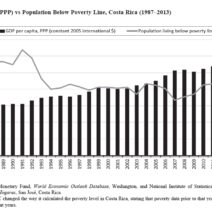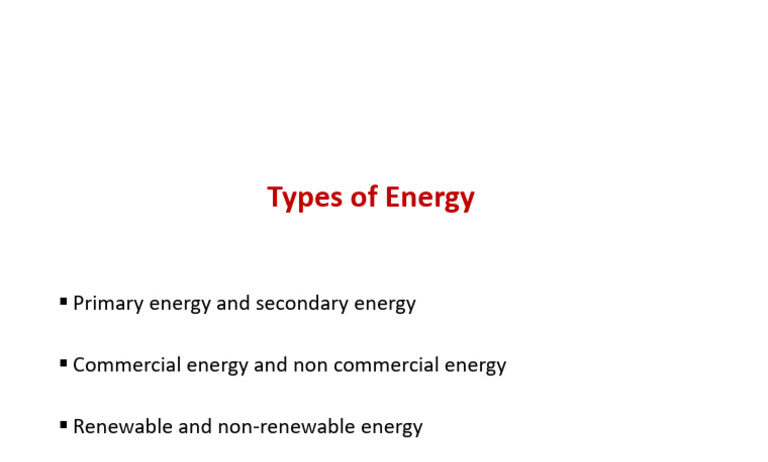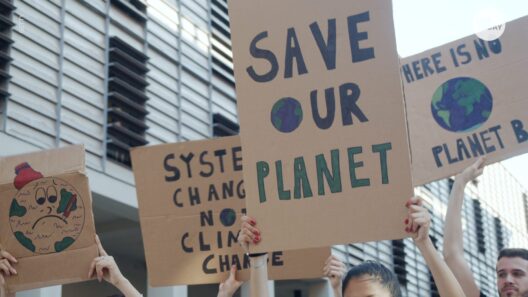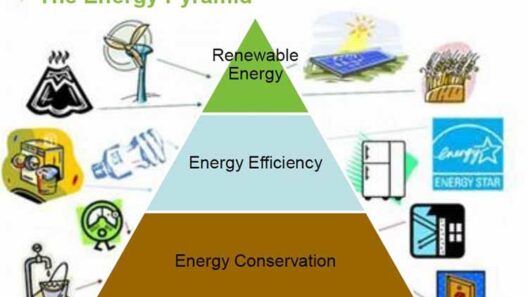Energy conservation is a pivotal concept in the contemporary discourse surrounding environmental sustainability and climate change mitigation. At its core, energy conservation involves the function of reducing energy consumption through using energy more efficiently or by employing alternative strategies. Understanding energy conservation not only helps in mitigating the impacts of climate change but also leads to potential economic advantages. In this examination, we will delve into the various aspects of energy conservation, clarifying its definition, significance, types, and actionable strategies that individuals and organizations can implement.
To define energy conservation explicitly, it is essential to distinguish it from related concepts such as energy efficiency. While energy efficiency refers to the use of technology to consume less energy for the same output—like employing LED lighting instead of incandescent bulbs—energy conservation encapsulates a broader array of measures. These measures encourage behavioral changes and operational modifications aimed at diminishing overall energy usage. Thus, energy conservation can be understood as both a proactive choice and an intentional lifestyle adjustment.
One of the most profound reasons to emphasize energy conservation is its role in mitigating climate change. The burning of fossil fuels for electricity, heat, and transportation is one of the largest contributors to greenhouse gas emissions. By conserving energy, individuals and organizations can directly contribute to reduced emissions, thereby playing a crucial role in combating global warming. A significant reduction in energy consumption diminishes reliance on nonrenewable energy sources, leading to a more sustainable environment.
In addition to environmental benefits, energy conservation can yield substantial economic advantages. Lower energy consumption directly translates to reduced utility bills for both consumers and businesses. Individuals can save money, while businesses can enhance their profit margins. Moreover, energy conservation practices can stimulate job growth in green technology sectors, leading to a more robust economy. Thus, the intersection of environmental stewardship and economic prudence creates a compelling case for embracing energy conservation.
Understanding various types of energy conservation practices can empower individuals to make informed choices. These practices can be broadly categorized into behavioral changes, technological upgrades, and organizational policies.
Behavioral Changes
Simple yet effective behavioral changes constitute one of the easiest and most impactful forms of energy conservation. Individuals can contribute by adopting habits such as turning off lights when leaving a room, utilizing natural daylight, and unplugging electronics when not in use. These minor adjustments, when aggregated, can lead to a substantial decrease in overall energy consumption. Educating oneself and others about the importance of energy conservation can engender a cultural shift, wherein energy-aware behavior becomes the norm instead of the exception.
Technological Upgrades
The transition to more energy-efficient appliances and systems represents another critical element of energy conservation. Homeowners and businesses can opt for ENERGY STAR-rated appliances that consume less energy without compromising performance. Furthermore, implementing smart technologies, such as programmable thermostats and energy management systems, can optimize energy use by adjusting settings based on occupant behavior and preferences. Additionally, investing in renewable energy sources, such as solar panels, not only conserves energy in the long term but also fosters energy independence.
Organizational Policies
On an organizational level, businesses can establish energy conservation policies that promote sustainability. These policies might include routine energy audits to identify areas for improvement, incentivizing employees to engage in energy-saving techniques, and committing to sustainability certifications. Implementing a culture of conservation and sustainability can further enhance a company’s reputation while attracting environmentally conscious consumers and investors.
Emphasizing energy conservation transcends simple reductions in consumption; it embodies the broader pursuit of sustainable living. Various types of content related to energy conservation can further educate the public about its importance. Educational resources such as workshops, online courses, and informational websites provide guidance on best practices. Additionally, community engagement initiatives, including local energy challenges and awareness campaigns, can foster collective responsibility for energy consumption.
Moreover, government policies and incentives play a critical role in promoting energy conservation. Subsidies for energy-efficient appliances, tax breaks for renewable energy installations, and grants for energy audits can facilitate both individual and organizational investment in energy conservation. Awareness of these incentives can empower citizens to make choices aligning with sustainability goals while simultaneously benefiting financially.
In conclusion, the foundation of successful energy conservation lies in an informed understanding of its definition, significance, types, and methodologies. By distilling complex energy concepts into actionable information, individuals can contribute to a larger collective effort aimed at combating climate change. The resulting benefits—economic savings, environmental protection, and enhanced quality of life—make energy conservation an essential pursuit for everyone. As energy-powered lifestyles become ubiquitous, embracing conservation presents an opportunity for both individual empowerment and societal progress. Mindful energy consumption, anchored in both technological advancements and behavioral adaptations, can illuminate a path toward a sustainable future.








